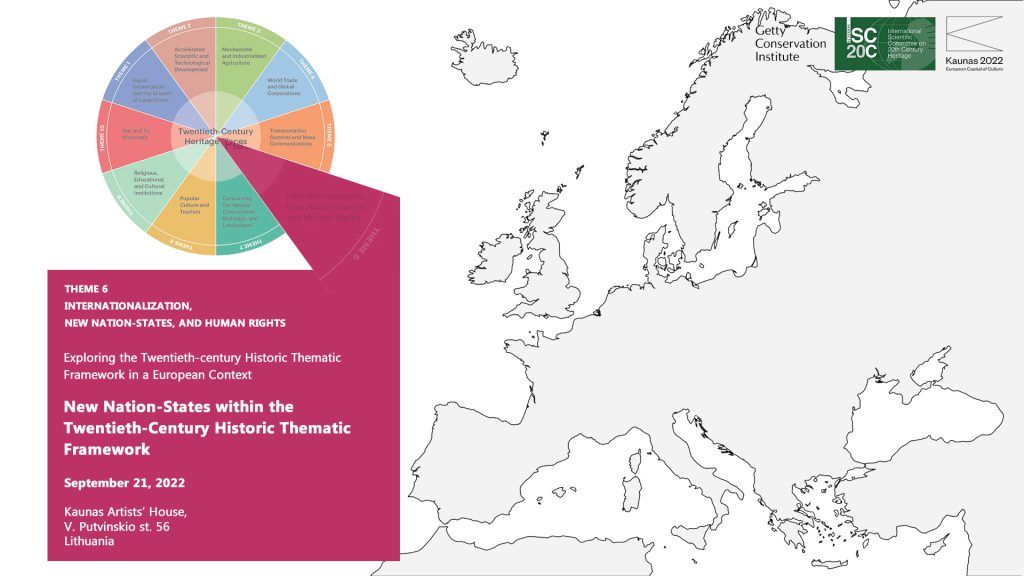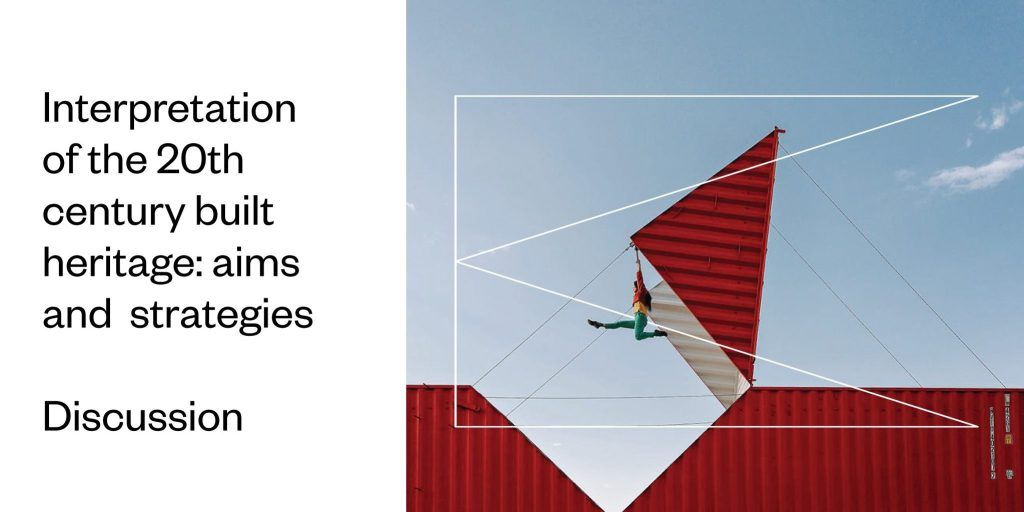ICOMOS ISC20C Regional Seminar

Turning the past into heritage is an act of cultural empowerment. An act that depends on our constantly changing political, social or emotional relationship with the physical artefact. David Lowenthal once said that “the past is a foreign country reshaped by today, its strangeness domesticated by our own modes of caring for its vestiges”. The reasoning behind the decision to declare the artefact of the past a cultural heritage is constantly being updated, rethought and refined. For our generation, heritage is no longer the most beautiful or oldest fragments of our past. Heritage now is instead a complex testimony of humans as a species. ICOMOS ISC20C invites the world heritage community to a series of regional seminars on the “Twentieth-Century Historic Thematic Framework” as a tool for rethinking the global narratives associated with 20th-century heritage. Seminars aim not only to develop the knowledge and broad understanding of 20th century heritage but also to support opportunities to present, share and expand their new cases and ideas on the 20th century. The seminar in Kaunas will focus on the topic of “New Nation-states” as a phenomenon of modernizing world. Based on the experience of Kaunas European Capital of Culture, the seminar will debate the role of contemporary interpretations in the process of identifying, understanding and disseminating of this narrative.
Moderator of the seminar “New Nation States Within the Twentieth-Century Historic Thematic Framework” – Vaidas Petrulis. Participants: Riin Antalu (EE, ICOMOS), Marija Drėmaitė (LT), Grzegorz Piątek (PL), Edward Denison (UK).
Video of the seminar
Photo archive:
Photos of the event. Photos by G. Jovaiša (Kaunas 2022), 2022.
Discussion: “Interpretation of the 20th century built heritage: aims and strategies”

In the mid-20th century, the classic of heritage conservation, Freeman Tilden, pointed out that the mere knowledge of historical facts is not a sufficient motivation for the preservation of historical heritage. It requires interpretation to encourage the discovery of new meanings of artefacts from the past in the present. In 2020 Kaunas 2022 Architecture and Heritage Programme Modernism for the Future invited artists, community activists and curators from all fields to an open discussion on the importance of interpretation in making sense of the architectural legacy of modernism in Kaunas.
What questions were asked?
– What are the challenges facing the interpretation of 20th century architecture?
– In what ways do different groups/artists engage in this process?
– What are the specific challenges and expectations of Kaunas in this context?
The discussion is organised as an instrument to reflect openly and critically on the processes taking place in the city and to form a message about future expectations and possible ideas for artistic interpretations.
Programme
Part 1. Good practices in heritage interpretation and the case study of Kaunas
Vaidas PETRULIS. Interpretation of modern architecture in Kaunas. Specific needs of Kaunas while preparing UNESCO World heritage nomination.
Laura SERRA and Maxime FOREST (France). Interpreting modernist heritage from design: Sharing experiences from France and Central & Eastern Europe
Kotryna GARANASVILI (Lithuania / England). Writing in Architecture: Re-imagining Kaunas Modernism in a Novel.
Hugo HERRERA TOBÓN (Netherlands). Bottom-up, subjective mapping practices: designing methods for local engagement.
Aideen BARRY (Ireland). “Strange Terrain.
Part 2. Open discussion.
An open discussion with the local heritage community on interpretations of Kaunas Modernism.
Laura SERRA and Maxime FOREST (France)
Kotryna GARANASVILI (LT / UK).
Hugo HERRERA TOBÓN (Netherlands).
Aideen BARRY (Irland).
Discussion:
Launch event of the program "Modernism for the Future"
At the beginning of 2018, the official architecture and heritage programme “Modernism for the Future” of the project “Kaunas 2022 – European Capital of Culture” was launched, contributing to the celebration of the centenary of the state and the European Year of Heritage programme. During the event, the idea, vision and plans of the project were presented, as well as the activities that will bring the heritage community together.
Presentation video
Photo archive:
Photos by M. Plepys (“Kaunas 2022”), 2018.
